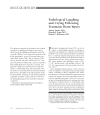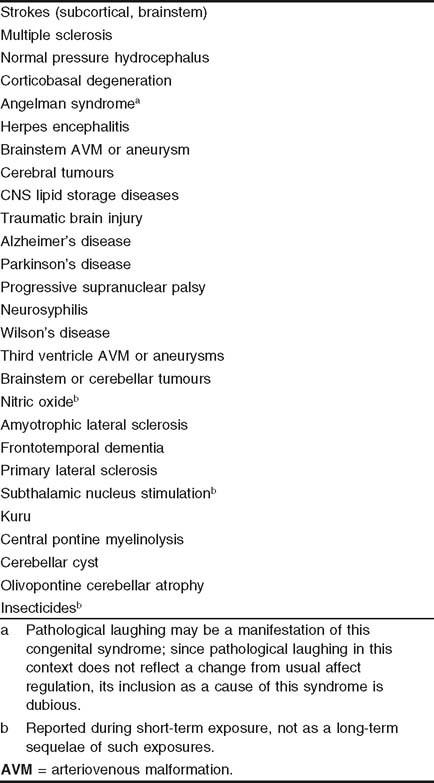

When we laugh unintentionally and repeatedly, we may be experiencing pathological laughter. The person may be laughing and crying at the same time in a way that seems childish or violent. He or she may have a tic and may make twitching motions, or may seem slightly disoriented. But every now and then, you'll find yourself waiting in line at the bank or at the grocery store when someone just laughs suddenly and wildly for no apparent reason. According to the science of happiness, intentional laughter can even uplift our mood and make us happy. This sounds a little strange - what do laughter and sickness have to do with each other? When we laugh, it's usually a sign of happiness. For more information, see How We Make Money.Normally, we laugh because something's funny, but sometimes laughter can be something more serious - a medical symptom. This article wasn’t sponsored and doesn’t contain affiliate links.
Being There, a Book About Caregiving After Stroke. Stroke Therapy Exercises for Upper and Lower Body. Recognize Signs of Stroke and Act F.A.S.T. Next Step Worried that your older adult has PBA? Take this quick assessment and discuss the results with their doctor Pathological laughter and crying how to#
If you’ve been struggling to understand why your older adult has been experiencing uncontrollable crying and laughing after their stroke, PBA could be the reason.Ĭheck with their doctor or neurologist to get a diagnosis, treatment recommendations, and more information about how to manage the symptoms. If you notice symptoms, talk with their doctor When you think you are about to cry or laugh, change your body position.Relax your forehead, shoulders and other muscles that tense up during an episode.Take slow deep breaths until you feel more in control.When you feel an outburst starting, distract yourself by counting objects on a shelf or thinking about something unrelated.

Be open about the problem so family and friends aren’t surprised or confused when you have an episode.Let them know you support them, they’re not alone in this, and that many people suffer from PBA symptoms.ĥ tips to help stroke survivors cope with PBA symptoms.
 Remind your older adult that their outbursts are a side effect of stroke, not a mental condition. By recording each episode, you can help their doctor make an accurate diagnosis. These drugs are supposed to help control the symptoms, but may not completely get rid of the outbursts.ģ tips for supporting your older adult with PBA If that is the cause of the emotional episodes, the doctor may recommend a PBA drug or an anti-depressant. It’s important to get a diagnosis to find out if your senior truly does have PBA. PBA episodes are brief, spontaneous outbursts that might not reflect how your older adult really feels. In general, depression is an ongoing feeling of sadness or hopelessness that can last for weeks or months. That causes it to be underdiagnosed, undertreated, and sometimes inappropriately treated. Stroke is one cause of PBA, but it can also happen in people who have other neurological disorders like ALS, Parkinson’s, traumatic brain injury, multiple sclerosis, dementia, Wilson’s disease, or brain tumors.īecause PBA can cause uncontrollable crying after stroke, it’s often mistaken for depression. The damage causes short circuits in brain signals, which trigger these involuntary episodes of laughing or crying. PBA happens when stroke damages areas in the brain that control how emotion is expressed. Why does PBA cause uncontrollable emotional outbursts? This makes life even more difficult because it’s extra frustrating when you don’t know what’s wrong or why this crazy behavior is happening. These uncontrollable outbursts can be embarrassing, cause problems with social life and relationships, and cause your older adult to be unwilling to leave the house.Įven though 53% of stroke survivors have reported PBA symptoms, less than 20% have heard of this disorder. The American Stroke Association says these episodes could happen up to 100 times a day. They could also have spontaneous emotional outbursts, without any type of trigger. Someone with PBA might laugh when hearing sad news, switch quickly from laughing to crying, or cry hysterically over something mildly sad. These responses are exaggerated or inappropriate and usually don’t represent the person’s actual feelings. Pseudobulbar affect is a neurological condition that causes uncontrollable crying or laughing. Pseudobulbar affect causes uncontrollable laughing and crying
Remind your older adult that their outbursts are a side effect of stroke, not a mental condition. By recording each episode, you can help their doctor make an accurate diagnosis. These drugs are supposed to help control the symptoms, but may not completely get rid of the outbursts.ģ tips for supporting your older adult with PBA If that is the cause of the emotional episodes, the doctor may recommend a PBA drug or an anti-depressant. It’s important to get a diagnosis to find out if your senior truly does have PBA. PBA episodes are brief, spontaneous outbursts that might not reflect how your older adult really feels. In general, depression is an ongoing feeling of sadness or hopelessness that can last for weeks or months. That causes it to be underdiagnosed, undertreated, and sometimes inappropriately treated. Stroke is one cause of PBA, but it can also happen in people who have other neurological disorders like ALS, Parkinson’s, traumatic brain injury, multiple sclerosis, dementia, Wilson’s disease, or brain tumors.īecause PBA can cause uncontrollable crying after stroke, it’s often mistaken for depression. The damage causes short circuits in brain signals, which trigger these involuntary episodes of laughing or crying. PBA happens when stroke damages areas in the brain that control how emotion is expressed. Why does PBA cause uncontrollable emotional outbursts? This makes life even more difficult because it’s extra frustrating when you don’t know what’s wrong or why this crazy behavior is happening. These uncontrollable outbursts can be embarrassing, cause problems with social life and relationships, and cause your older adult to be unwilling to leave the house.Įven though 53% of stroke survivors have reported PBA symptoms, less than 20% have heard of this disorder. The American Stroke Association says these episodes could happen up to 100 times a day. They could also have spontaneous emotional outbursts, without any type of trigger. Someone with PBA might laugh when hearing sad news, switch quickly from laughing to crying, or cry hysterically over something mildly sad. These responses are exaggerated or inappropriate and usually don’t represent the person’s actual feelings. Pseudobulbar affect is a neurological condition that causes uncontrollable crying or laughing. Pseudobulbar affect causes uncontrollable laughing and crying







 0 kommentar(er)
0 kommentar(er)
